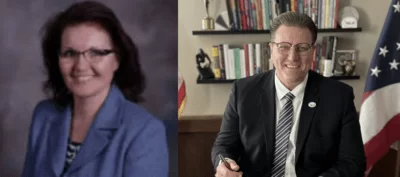Although some critics may have feared the internet would kill the library – or books themselves – libraries are far from irrelevant or obsolete. As our article earlier this month demonstrated, they provide not only books and DVDs, but also computer access, quiet study places, and various classes and activities; opportunities for learning, if you will.
Still, it’s a difficult time for libraries in some respects, as they find themselves in the crosshairs of a political and cultural battle. Activists in cities across the country wage banned book campaigns, and some parents are fighting drag queen story hours for preschoolers, which are sometimes held at public libraries.
According to a 2022 report from the free-speech group PEN America, from July 2021 to June 2022, there were 2,532 instances of individual books being banned in the U.S., affecting 1,648 unique book titles. The books banned often cover issues involving race or sexuality. The report identified fewer than 10 bans in Ohio.
Hallie Rich, a spokeswoman for Cuyahoga County Public Library outside Cleveland, told the Mount Vernon News that there has been a dramatic increase in book bans and "material challenges" in public and school libraries over the last few years.
"In 2021 and 2022, the rates of material challenges in public libraries increased three- and four-fold," Rich said. "In a typical year in pre-pandemic times, across the country, you might hear about a couple of hundred challenges. That number was more than 1,200 in 2022."
An example of a challenge is the case earlier this month involving Llano County, Texas, where commissioners considered shutting down their library system after a federal judge canceled their ban on 17 books, according to a story on Texas Public Radio.
Among the titles in the Texas ban were “Gabi, a Girl in Pieces” by Isabel Quintero; “Caste: The Origins of Our Discontents” by Isabel Wilkerson; and “Freakboy” by Kristin Elizabeth Clark. (Click here for the full list.)
A review of the titles being challenged shows that a growing number of objections are on titles dealing with LGBTQ (lesbian, gay, bisexual, transgender, questioning) and gender issues, Rich said.
"Books that are either written by people of color or dealing with characters who are people of color also tend to be the kind of titles that are included in these attempted book bans," she said.
In Ohio, the American Union PAC mounted a campaign in March to ban “Gender Queer,” by Maia Kobabe. According to a story on Cleveland.com, Kobabe recounts her experience of being gender non-binary. Dakota Sawyer with the American Union PAC contacted Fran DeWine, wife of Ohio Gov. Mike DeWine, to enlist her help with the ban.
Sawyer’s letter acknowledges Fran DeWine’s support of another childhood literacy program, the Dolly Parton Imagination Library, and asks for DeWine’s support of the book ban.
“Unfortunately, some have taken advantage of a child’s love for reading and have used that to show children pornographic books in our public schools,” the letter reads. “We hope that you will join in condemning school districts across the state which have pornographic books in their school libraries.”
John Chidester, director of the Public Library of Mount Vernon and Knox County, said he objects to campaigns to defund libraries.
“That kind of attitude, I think, is extraordinarily counterproductive. It's authoritarian, and I don't think most people will respond very favorably to it,” Chidester said. "That kind of a threat is likely to backfire. It certainly would in the state of Ohio.”
Chidester said the PLMVKC has occasionally come under scrutiny regarding books visitors deem inappropriate. The library has a form people can fill out to register a complaint about a particular item.
"No one is required to read, view or listen to anything in the library's collections,” he said. “So no one has the right to prevent someone else from access to those materials. That's the basic point of view of intellectual freedom.”
He said in Ohio, school librarians and public libraries belong to the Ohio Educational Library Media Association, which operates an intellectual freedom committee that addresses these issues.
A typical challenge arises when a parent or community member discovers a library book they deem objectionable, Rich said.
Over the past couple of years, however, the challenges have become wider in scope.
"They are not coming in with one title, they are coming with a whole list, sometimes a couple of hundred books," she said. "They are saying, 'I don't know if you have these in the library, but if you do, I want them out.'"
The numbers reflect the nation's political discourse, she said.
"Our understanding of the underlying element of this is that it is a manifestation of the more charged political environment," she said.
The internet has helped magnify the movement.
"What we're finding is that these lists that are coming forward with 200 titles that they have personally not read are being pulled from organized groups," she said. "This is the strategy that they are employing. That ability to organize online I think is a big part of what we are seeing with the proliferation of attempted book bans."
Ultimately, the decision on which books are appropriate and which aren't is decided by the library and the community it serves, Rich said.
That includes whether to hold "drag queen" reading hours at local libraries.
"Different libraries make decisions about the kind of programs they are going to hold," Rich said. "Drag queen story hours started a couple of years ago, and they tended to be in larger cities. They were meant to be fun and engaging and a way to introduce family to different people and different perspectives. Any library system, when they are making decisions on programs they want to hold, they ought to be doing based on what they think are the needs of the community."






